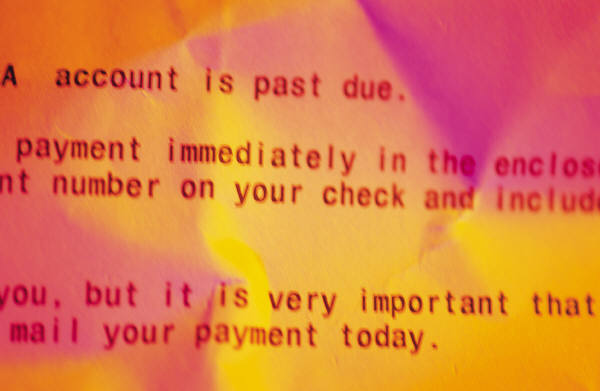
If the phone never stops ringing and bill collectors are harassing you morning, noon and night, you’re not alone. With millions of Americans facing financial peril due to job loss, medical bills, or other financial hardships, it’s no wonder that our economy isn’t yet recovering to pre-recession standards. But there is hope and options are available to ease the stress of overwhelming financial pressures if you know where to look.
Often one of the first places to look is in the financial management and consumer credit counseling service industries. While this may be an option for some consumers, there are also a fair amount of disreputable firms who will only make matters worse. People in crisis are often juicy prey for disreputable financial management companies who advertise debt management or consolidation services, but fail to explain the fine print on their agreements.
Debt Counseling
Remember that even if the debt counseling organization touts itself as nonprofit, that doesn’t translate to ‘free’, low cost or even affordable services for the consumer. Ask for all fee schedules upfront BEFORE any work commences and be sure that you understand what you’re agreeing to. Better yet, go to your bank, a local credit union, housing authority, or branch of the U.S. Cooperative Extension Service and request assistance there. Even if they don’t perform the counseling services themselves, they can make reputable references to companies in your area. It’s always better to meet face-to-face rather than deal with personal finance issues over the phone, or worse yet, over the Internet. In the meeting, you’ll learn about ways to better manage your debts, develop a working budget and receive counseling on financial management. The purpose of credit counseling is to become self-empowered to manage your own finances.
What’s the difference between a debt consolidation and debt management company?
While it may seem like splitting hairs, there are tremendous differences between a debt consolidation company and a debt management company and that distinction can cost an unknowing consumer thousands of dollars.
Debt management companies exist to coordinate a consumer’s debt repayment options, create a workable plan, and provide credit counseling services. The form of debt is usually in credit cards, but can also include automobile loans, student loans, and numerous other forms of debt. Typically recommended after a consumer has attended a credit counseling session and realized that his or her debts are too substantial to be self-managed, a debt management organization can assist with credit card company negotiation, reduction of monthly payments, or restructuring the debt to a more affordable monthly amount. Working in concert with a credit counseling company, the consumer will pay a monthly amount to the credit counseling company, who in turn disburses the amount to the various unsecured debts owed (i.e. student loans, medical bills, credit cards, etc). They do this according to a debt management plan (DMP) established with the consumer and for a fee. Consumers should always call their creditors personally to verify that they will reduce their rate or provide the agreed upon repayment plan negotiated by the DMP.
What to watch for from DMPs:
- Requests for high lump sum payments upfront for work to be done.
- Pressure to make ‘voluntary’ contributions (i.e. FEES!)
- Fast enrollment process that requires you to sign before you fully understand the program or have a repayment plan
- Will all of your creditors agree to work with the company you have chosen? If a company won’t provide you relief for all of your debt, you will pay a high price and your problems won’t be completely solved.
- Check out any potential company with the Better Business Bureau. Imagine the financial ruin you would face if you paid a DMP large sums of money and your creditors never received any payments on your behalf.
Debt Consolidation These organizations work with consumers to ‘consolidate’ the total amount of the unsecured and sometimes even secured debts such as car and home payments into one monthly payment, typically with a lower interest rate than the variable rates on most credit cards. The consolidation loan can be in the form of a home equity loan, a second mortgage or via a credit consolidation company who provides the loan. Consolidation can be an attractive option if you’re dealing with high credit card rates and even higher monthly minimum balances.
Be advised that consolidation is not for everyone as consumers are often required to put up additional collateral, such as their primary residence, to secure the loan. If you miss a payment, the consolidation company can assume ownership of your home, leaving you homeless! Some loans may even require the borrower to pay additional ‘points’ on the loan amount. Read the fine print carefully. When in doubt, it is always worth having a licensed real estate attorney review the documentation before you sign.
Consolidation loans can provide financial benefits in the form of tax credits. With reputable consolidation agreements, it is possible to receive tax benefits in the form of interest payment deductions that can lower your tax burden.
With any of the debt counseling, management and consolidation programs, it’s important to realize your own strengths and weaknesses with regard to finances. If you will not be able to control your spending, or foresee a short term future need to use your credit cards again, the process will break down and debts will again to begin to mount.
